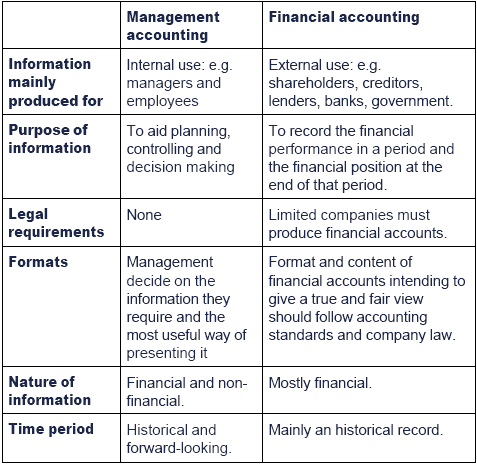The language of the tax gap and all issues relating to it is confusing for many lay observers of the tax world. This briefing seeks to tackle one major cause of confusion, which is the difference between tax evasion, tax avoidance, tax compliance and tax planning. Tax evasion is the illegal non. Within the industry, services are classified as tax return preparation (compliance) and tax consulting. Tax compliance is the process of reporting past transactions, while tax consulting generally involves planning for future transactions. These two functions are often intertwined, with tax professionals discovering consulting work in the process of return preparation and doing compliance work. At the same time, tax planning is usually seen just as a part of the financial planning of a company. However if one looks at the history of the meaning of the two terms he will see that there is no big difference between the two. If tax planning is a role merely encompassed in top management's duties, then we might not observe an association between tax director incentives and measures of tax planning after controlling for the incentives of top management. Although both Tax Planning and Tax Avoidance are legal ways to reduce tax, there is only a thin line of difference between Tax Planning and Tax Avoidance. In Tax Planning, a taxpayer is doing what the govt wants him to do whereas in tax avoidance, a taxpayer is doing something which the govt didnt expect the taxpayer to do. In effective tax planning, the result of these arrangements is consistent with the intent of the law, but when tax planning minimizes tax payable through ways that are inconsistent with the spirit of the law, it is known as tax avoidance. Difference between Tax Evasion and Avoidance. Tax management in companies 1 Introduction Coping with change 3 The world of corporate taxes is changing and there is no going back, says John Clymer Applying corporate responsibility to tax 6 The practice of corporate responsibility is subject to much debate. Tax avoidance is the legitimate minimizing of taxes, using methods included in the tax code. Businesses avoid taxes by taking all legitimate deductions and by sheltering income from taxes by setting up employee retirement plans and other means, all. The difference between tax planning and tax avoidance primarily depends on the difference in benefits that are availed to minimise tax burden. So, take a look at this article which might help you understand the two terms in detail. Taxation is an extremely important aspect of estate planning, wealth management, and asset protection. Although Benjamin Franklin famously declared that death and taxes share an unavoidable certainty, the burdens of inheritance and estate taxes can be significantly reduced with the adequate estate planning and the right legal strategies. Difference between Tax planning, Tax avoidance and Tax evasion. 1)DEFINITIONTax planning: It is a way to reduce tax liability by taking full advantages Difference between financial planning and wealth management: Financial planning and wealth management are inherently very similar. Yet, there are some key differences. The biggest difference is that you already need to be wealthy to manage your assets. Financial planning, on the other hand, is even for those who aim to amass wealth. An accountant is best utilized when you have a very specific tax situation, such as owning your own business, making above 200k, expect to give money to your children, owning rental properties, or anticipate receiving a large capital gain. I was asked yesterday by a pretty experienced tax journalist how I defined the difference between tax planning and tax avoidance. The difference between finance and accounting is that accounting focuses on the daytoday flow of money in and out of a company or institution, whereas finance is a broader term for the management of assets and liabilities and the planning of future growth. Tax saving practices include tax avoidance, tax evasion and tax planning. Out of these tax planning is the only legal manner of reducing your tax liabilities. The government offers the different opportunities to save on taxes with the intention of reducing tax burden on. The difference between tax planning and tax avoidance largely comes down to intent. Tax planning is organising your clients tax affairs in the most tax effective way within the intent of the law. In contrast, tax avoidance schemes involve the deliberate exploitation of the tax system. Tax consulting groups who offer tax management services would tell you that tax planning and tax management are related to one another. Although they are very similar in more ways than one, the main difference between the two would be the time frame to which each shall be conducted. It is sometimes difficult to appreciate the difference between the two but in basic terms tax evasion is deliberately escaping from paying tax that should be paid, whereas tax avoidance is the exploitation of rules in order to reduce the tax that would otherwise be paid. Tax Planning is an exercise undertaken to minimise tax liability through the best use of all available allowances, deductions, exclusions, exemptions, etc. Tax planning can be defined as an arrangement of one's financial and business affairs Corporate tax reporting Partnership tax reporting Tax data management and analytics Tax operations management Tax function of the future: Asset and wealth management Global compliance services Tax accounting performance improvement Tax enterprise resource. tax planning is a wider term and tax management is narrow term which is a part of tax planning. tax planning emphasizes on tax minimization whereas, tax management is c ompliance of legal. The figure reflects the difference between the effective tax rates of these companies and the rates that they would pay if taxes were levied where they generated their revenues. the difference between tax planning and tax management. Tax Planning Tax Management (i) The Objective of Tax Planning is to minimize the tax liability The objective of Tax Management is to comply with the provisions of Income Tax Law and its allied rules. How tax is calculated How tax can be evaded How tax can be properly planned. How various situations affect the tax planning and management. What all persons or committees are involved in the management and planning of Tax and Liability. 2 Concept of Tax Planning, Tax Avoidance and Tax Evasion. Whenever any tax is introduced, there is always a struggle between the words tax planning, tax management, tax avoidance and tax evasion are often used. Though the ultimate objective of all Illustration of difference between tax planning. However, if you need help with financial planning, asset management or audit assistance, a CPA may suit better. There might be a cost difference between the type of accountant you choose; however, dont let cost dissuade you from getting the help that you need to adhere to tax laws. While tax planning and tax management correlate with each other, the two aspects of taxes have several differences. The primary difference between planning and management is the time frame in which each part is conducted. The tax planning takes place ahead of time, while the tax management is the implementation of the plan. Tax Planning involves planning in order to avail all exemptions, deductions and rebates provided in Act. The Income Tax law itself provides for various methods for Tax Planning, Generally it is provided under exemptions us 10, deductions us 80C to 80U and rebates and reliefs. This would mean more man hours needed for tax planning, record keeping, and account maintenance. In addition, a simple trust is required by the Federal income tax law to distribute all net income from the trust property on a yearly basis. tax planning is a wider term and tax management is narrow term which is a part of tax planning. tax planning emphasizes on tax minimization whereas, tax management is compliance of legal. An accountant works to measure and report an organizations financial status. For example, accountants prepare tax returns and financial filings in accordance with government regulations. Tax Management (i) The Objective of Tax Planning is to minimize the tax liability. The objective of Tax Management is to comply with the provisions of Income Tax Law and its allied rules. Tax gainloss harvesting is another form of tax planning or management relating to investments. It is helpful because it can use a portfolio's losses to offset overall capital gains. Carla Yrjanson Blog, Business Tax, Indirect Tax, State Local Tax, Tax May 15, 2015. A very common question in the tax community is What is the difference between sales tax and VAT? To answer this question, lets outline some of the similarities and differences. What is the difference between tax evasion, tax avoidance and tax planning? finances and achieve true financial independence through bespoke tax planning strategies. In summation, having an understanding of the differences that exist between the estate tax and inheritance tax is an essential element of estate planning and could help individuals avoid potential confusion or headaches that may exist in the future. The term tax aggressiveness refers to the downward management of taxable income through tax planning activities, disregarding benign activities such as. DIFFERENCE BETWEEN TAX PLANNING, TAX AVOIDANCE, TAX EVASION AND TAX MANAGEMENT. Point of Tax Planning Tax Avoidance Tax Evasion Tax Management distinction Definition It is way to reduce It is way to reduce It is the way to It is a procedure to tax bill by using tax bills by bending reduce tax bill by fulfill all. The Difference Between Your Accountant and Your Financial Planner Many business owners surmise that their accountant can do the job of both accounting and financial planning (or vice versa) when i Tax evasion is breaking the law, it mean not paying the tax its definately illegal, Tax planning is perfectly legal, it might be on investment on startup business or lending money to govt or income in savings account, the reduction in tax paid. Tax Planning is the process of availing deduction under section 10 A of Income Tax Act. Tax Avoidance is the process of misinterpreting the provisions of Income Tax Act in order to reduce the amount to be payed as tax. Minimize the war between Tax Payer and Tax Administrator, Tax payer wants to pay less tax and Tax Administrator wants to extract most of the tax, by using Tax Planning this war is minimized as tax payer is using all legal ways to reduce tax liability. Read on to learn why you should avoid tax evasion and use tax management instead. Tax evasion and tax planning are two different but related concepts. Read on to learn why you should avoid tax evasion and use tax management instead. Understanding the difference between tax evasion and other responsible ways to save on taxes is very. Key Differences Between Tax Avoidance and Tax Evasion. The following are the major differences between Tax Avoidance and Tax Evasion: A planning made to reduce the tax burden without infringement of the legislature is known as Tax Avoidance. With the complicated and dynamic nature of tax laws, recognizing how to take advantage of every opportunity to reduce taxes takes a thorough understanding of not only tax laws, but the moving components of your life. The key difference between financial audit and management audit is that financial audit is an audit conducted to present an opinion whether the company financial statements reflect a true and fair view whereas management audit is a systematic evaluation of capabilities of the companys management with regard to effectiveness in achieving the. The UK tax gap is the difference between the amount of tax that should, in theory, be collected by the tax collection agency HMRC, against what is actually collected. The tax gap for the UK in was 33 billion, or 5. Tax avoidance very similar to tax planning, only it is people making lawful decisions to not do something specifically to avoid the tax liability associated with it. The Tax planning refers to reduction of Tax incidence for a person entity, by taking the relaxation provided by the Income Tax Act, itself it is the legal way of tax reduction and requirement is full disclosure of Income nothing to hide..











